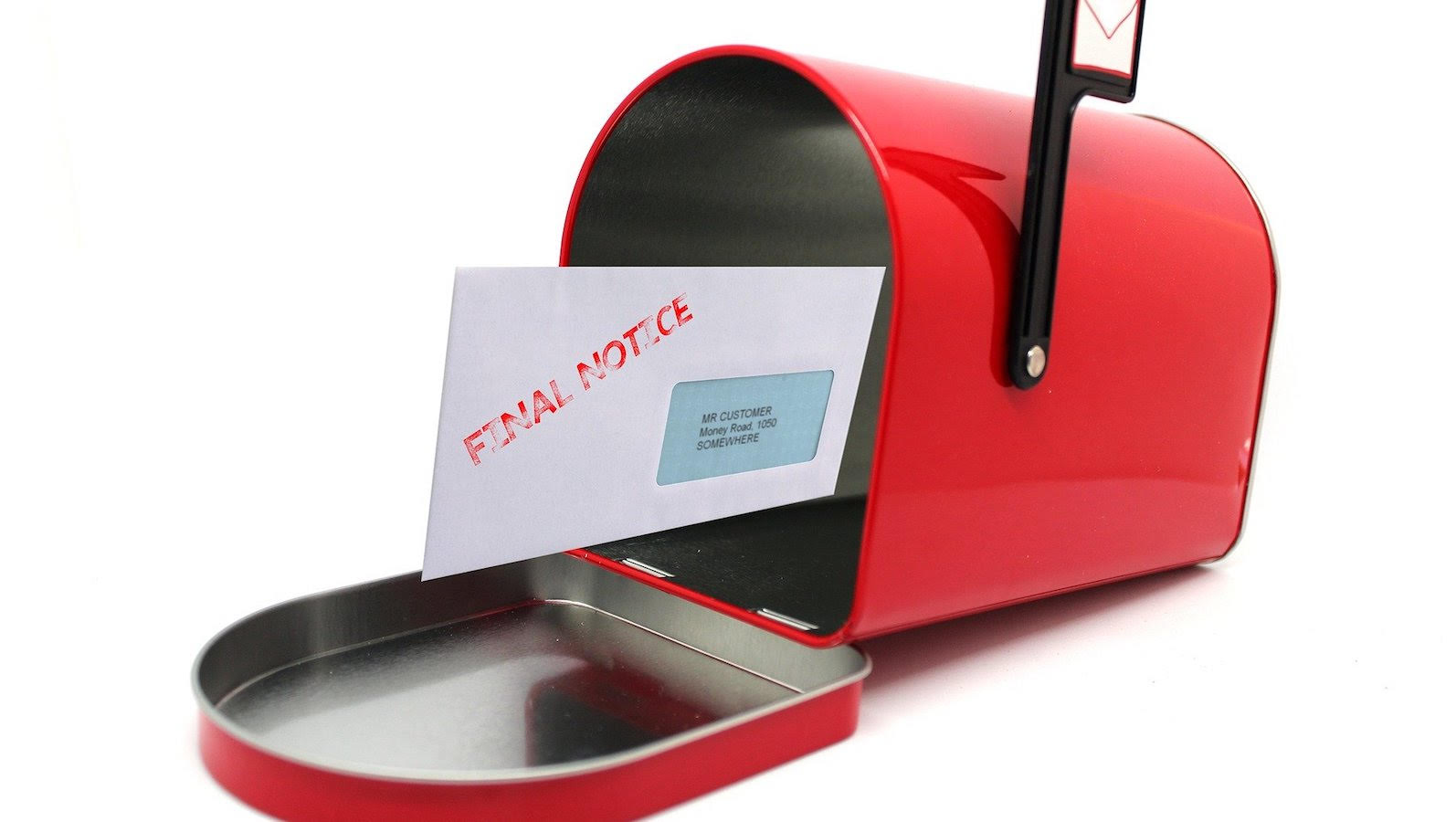
If you’re behind on your mortgage payments, here are some tips
Good news: You may still be able to request a forbearance because of COVID-19

If you’re struggling to keep up with your mortgage payments, you’re far from alone. More than 8% of homeowners with a mortgage are at least 30 days behind. And this doesn’t count the millions of people scrambling to pull together enough money to pay their mortgage only two or three weeks late every month.
We all know this is an unprecedented time. Millions of you or your loved ones are just trying to keep your heads above water after you lost your job or your hours were cut or your tips from customers tanked. About 18 million people lost the extra $600 a week in unemployment benefits a month ago. One in five workers received unemployment aid as of two weeks ago. Even if you’re back to work, you may be playing catch up from the springtime. Every week, more than 1 million people file for unemployment for the first time.
No wonder the mortgage delinquency rate — meaning at least 30 days late — has doubled and we saw the biggest increase in late payments ever during a quarter, according to the Mortgage Bankers Association. The delinquency rate is the highest in nine years.
“The COVID-19 pandemic’s effects on some homeowners’ ability to make their mortgage payments could not be more apparent,” Marina Walsh, MBA’s vice president of industry analysis, said in a statement.
However, in a new report, Fannie Mae this month found that about 60% of mortgage customers with incomes of $50,000 a year or less said they didn’t know about relief options under the CARES Act.
More than 80% of those who are behind on their mortgages are already in forbearance plans to delay their payments. That leaves about a half-million homeowners who are just racking up late fees and are trashing their credit.
If you’re one of them, you have options, including requesting a forbearance from your lender or servicer. Here are some tips and information to help.
What you need to know about forbearance:
-
Anyone suffering from financial hardship because of COVID-19 can request a forbearance, which essentially is permission from your lender to delay payments without incurring late fees.
-
If you’re among the 70% of mortgage customers whose loans are backed or sponsored by a government entity, you’re guaranteed a forbearance if you ask up until Dec. 31, or until 60 days after the federal national emergency is declared to be over, whichever comes first. The guaranteed approval applies to loans through Fannie Mae, Freddie Mac, FHA, Veterans Affairs and the U.S. Department of Agriculture.
Among the other 30%, many of these lenders are honoring forbearance requests as well because of the extraordinary financial circumstances that millions of homeowners found themselves in without warning in recent months. More than 10% of non-government-backed loans were in forbearance as of Aug. 31.
-
Remember it costs nothing to request a forbearance.
-
Here’s how to find out who holds your loan and whether you’re guaranteed a forbearance. You can look up who holds your mortgage. You can look up whether your loan is a Fannie Mae loan here or a Freddie Mac loan here. If you don’t find your loan under Fannie or Freddie, you can use this tool.
-
If you absolutely can’t afford your monthly payments, there’s no downside to requesting a forbearance while you sort out your finances, look for a new job or wait for more government assistance. Forbearance would allow you to delay your payments with no late fees or dings to your credit rating. As opposed to simply not making your payments and incurring late fees and negative marks on your credit report, it’s an attractive choice.
-
If you get a forbearance, your lender won’t necessarily ask you to agree to a definite date when your forbearance will end. Many of these requests are being processed as open-ended right now because banks are swamped and most consumers with financial woes don’t necessarily know how long they’ll need relief.
-
Realize that a forbearance isn’t free money. It doesn’t eliminate your monthly payments; it just gives you the right to delay making your payments without suffering any late fees or negative marks on your credit history.
-
Once your forbearance is over, you’ll need to work out with your lender how to catch up with missed payments. This may affect your decision to request a forbearance. In many cases, you can add the payments to the back of your loan.
-
If you’re among the 70% with a government-backed loan, your lender cannot require a lump sum payment of your missed payments. This protection is part of the Coronavirus Aid, Relief, and Economic Security Act (CARES Act), and is aimed at people dealing with any kind financial bumps because of the COVID-19 virus. No documentation is needed. If granted, the initial forbearance period lasts 180 days. If, after 180 days you still can’t afford your payments, you can request a 180-day extension.
What if you don’t have a government-backed loan and your lender won’t agree to a forbearance?
-
Contact a HUD-approved housing counselor if you can’t reach a repayment agreement with your lender and are at risk of foreclosure. This free service can help you evaluate programs to avoid foreclosure and help you prepare paperwork to submit to your lender.
-
Don’t panic. While the moratorium on foreclosures through Dec. 31 is required only for loans through Fannie Mae, Freddie Mac, FHA, VA and USDA, some other lenders are following this too voluntarily. Ask.
-
Make your monthly payments if you can, even if that means paying late, the Consumer Financial Protection Bureau says. Clearly, though, if money is tight, you have to make choices and may prioritize groceries or medicine.
But if you can pay before the grace period ends and a late fee kicks in, typically in 15 days, that may be the best choice for many.
Missing the grace period cutoff likely will mean a late fee, which is typically 3 to 6 percent, depending on the lender and local or state laws. If you had a 5 percent late fee on a $1,000 mortgage payment (not counting property taxes and insurance), the fee would be $50.
If you can pay before you’re 30 days late, you’ll incur the late fee but the payment won’t be reported to the credit bureaus as delinquent.
-
If you’re up against a wall, with a lender that won’t work with you and no friends or family you can borrow money from, you’ll need to consider refinancing or selling. However, refinancing may be more difficult if you’ve lost your job and your unemployment benefits are drastically less than what you were earning before. Refinancing becomes next-level difficult if you’re unemployed and have delinquent payments on your credit record, unless you have significant equity in your home, perhaps 50 percent or more.
As you’re unraveling your mortgage options, here are are a few other important steps you can take:
-
Watch out for con-artists who may try to take advantage of your hardship. Given that more than 4 million homeowners are either in forbearance or are a month or more delinquent, homeowners are a popular target for scammers these days. It’s bad enough to be behind on payments. But if you fall for a scam, you could face more financial pain or an identity theft mess that could take weeks or months to resolve.
Be on guard for anyone who may contact you by phone, email or text message and pose as your lender or a government official. Never provide personal information to anyone you weren’t expecting to contact you. Instead of talking with someone or returning the phone call or replying to the email immediately, independently look up the phone number for your bank or whoever claims to be calling to make sure you’re not being scammed.
-
Don’t evade legitimate calls or notices from your lender. This won’t help anything. Be proactive to find a solution. It will help you regain control and feel less stressed. Just make sure you return calls based on the number on your actual mortgage statement, not a voicemail.
-
Access your mortgage account online if possible to see whether you were placed in a forbearance program without your knowledge. This may not be a bad thing if you were or are behind on your payments. But you need to understand your rights and responsibilities. You should contact your lender immediately and ask for documents that explain what they think they’ve signed you up for. There have been scattered reports of consumers being put in forbearance programs and then not getting their payments credited properly when they’re made. If you can’t get resolution, file a complaint with the Consumer Financial Protection Bureau.
-
Check your credit report more faithfully, particularly since you can now pull your reports once a week at no charge from all three credit bureaus, as part of the CARES Act. Free weekly credit reports last through April. You want to make sure your lender is reporting your mortgage properly, either paying as agreed, but not late, unless you’re 30 days’ past due and not in forbearance. https://www.annualcreditreport.com
Topics
Authors
Teresa Murray
Consumer Watchdog, U.S. PIRG Education Fund
Teresa directs the Consumer Watchdog office, which looks out for consumers’ health, safety and financial security. Previously, she worked as a journalist covering consumer issues and personal finance for two decades for Ohio’s largest daily newspaper. She received dozens of state and national journalism awards, including Best Columnist in Ohio, a National Headliner Award for coverage of the 2008-09 financial crisis, and a journalism public service award for exposing improper billing practices by Verizon that affected 15 million customers nationwide. Teresa and her husband live in Greater Cleveland and have two sons. She enjoys biking, house projects and music, and serves on her church missions team and stewardship board.
Find Out More

Safe At Home in 2024?

What the Texas Data Privacy and Security Act means for you

5 steps you can take to protect your privacy now
